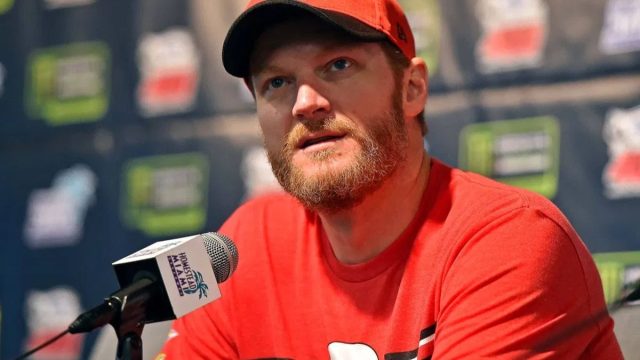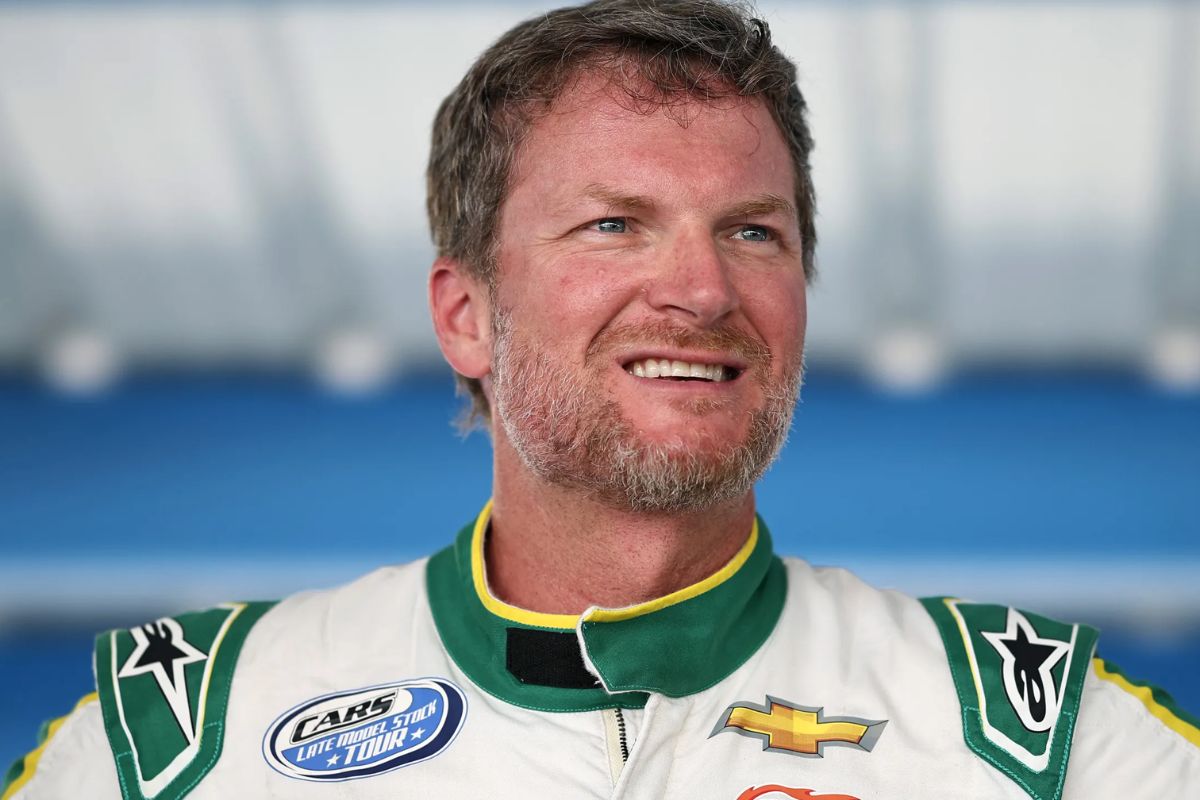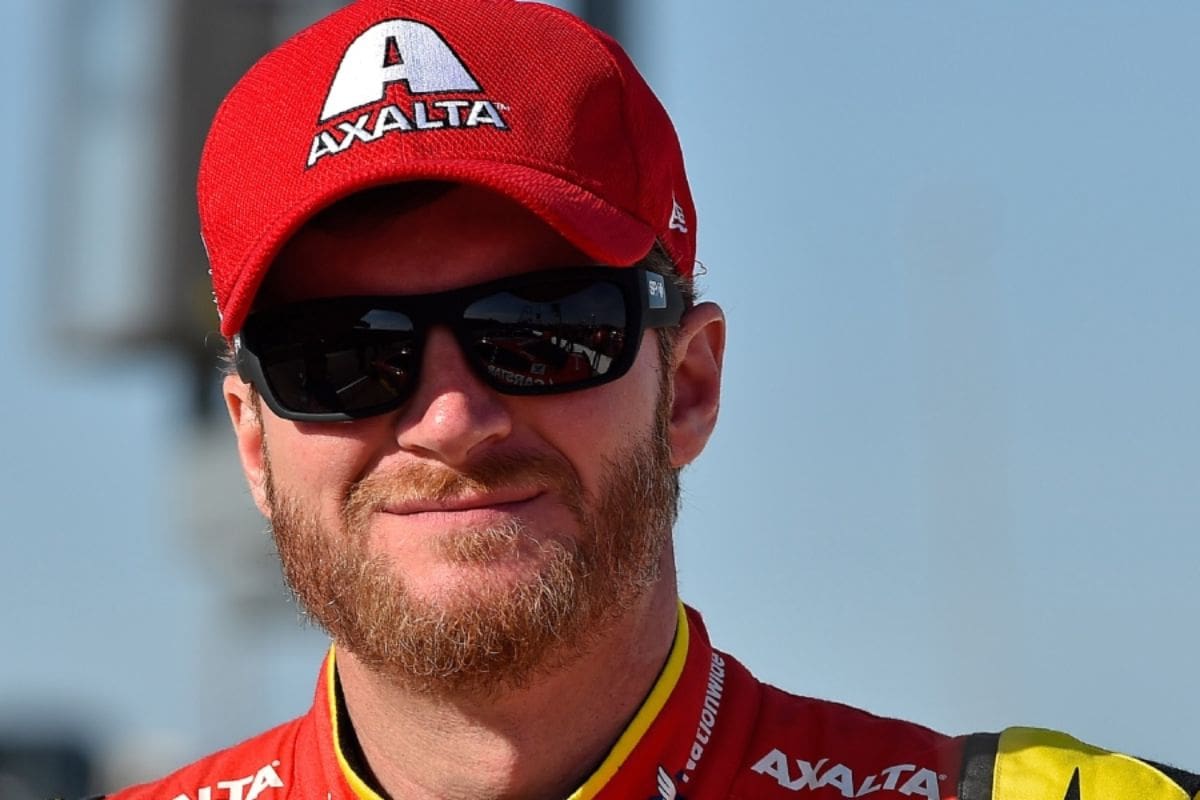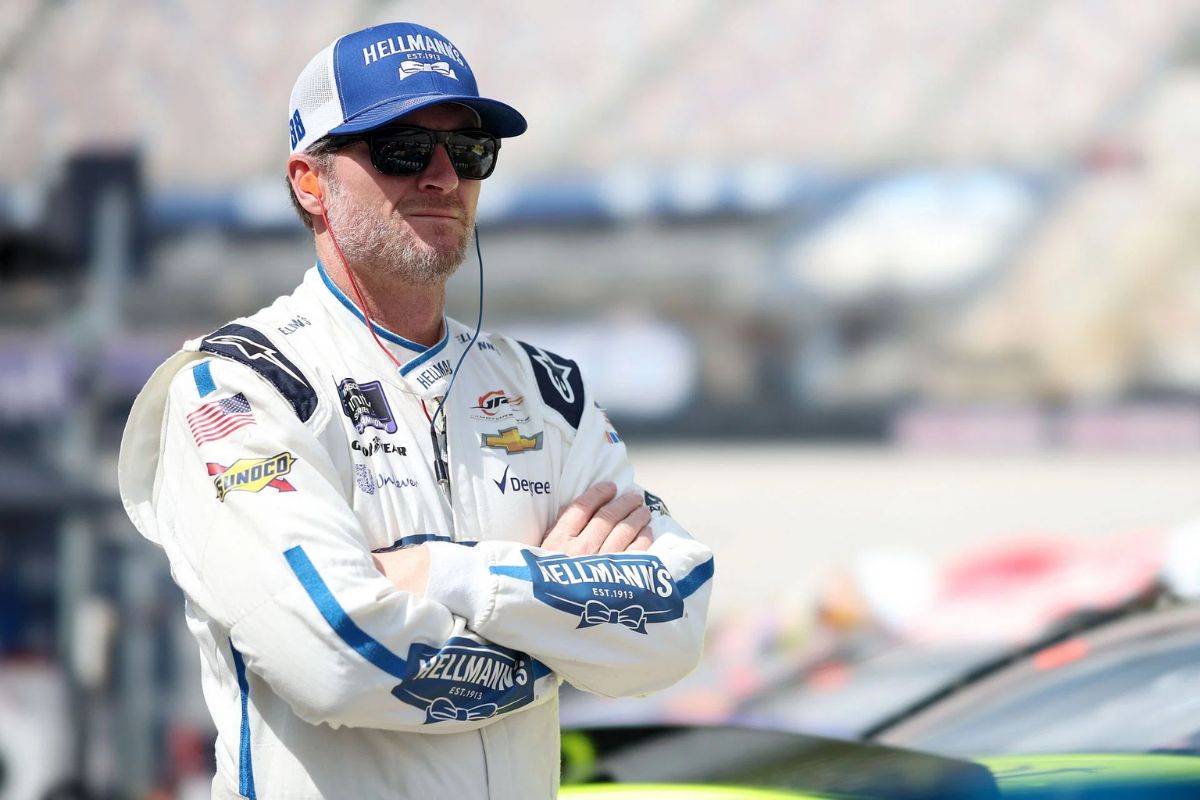Dale Earnhardt Jr. Challenges NFL: Dale Earnhardt Jr.‘s recent challenge to the NFL emphasizes a critical crossroads for NASCAR as it navigates a revolutionary $7.7 billion media rights agreement. By advocating for earlier race start times, Earnhardt Jr. aims to improve viewer engagement and address the frustrations that have long plagued fans and drivers similarly. This bold stance positions NASCAR to better compete with the NFL’s established scheduling and raises significant questions about the future of sports viewership and the adaptability of traditional motorsport. What implications could this shift have for the racing landscape and its audience?
Key Highlights
- Dale Earnhardt Jr. proposes NASCAR adopt earlier start times to enhance viewer engagement and align with audience expectations.
- His criticism highlights NASCAR’s inconsistent scheduling compared to the NFL’s predictable timetables, risking viewer loyalty.
- The $7.7 billion media rights deal emphasizes the need for strategic scheduling to maximize profitability and fan satisfaction.
- Earnhardt warns that failure to adapt could lead to long-term erosion of fan interest in NASCAR.
- Improved scheduling could enhance community building and strengthen bonds among fans, fostering a more engaged NASCAR audience.
Denny Hamlin’s Critique of NASCAR’s Race Start Times
Denny Hamlin’s recent critique of NASCAR’s race start times highlights a substantial tension between television networks’ scheduling demands and the sport’s traditional audience engagement. His assertion that the races have become excessively prolonged—“such a damn stretch”—points to a growing dissatisfaction among drivers and fans similarly regarding race durations and their implications for viewer experience.
The crux of the issue lies in the media rights deal worth $7.7 billion, which has compelled NASCAR to prioritize television viewership over the sport’s inherent rhythms.
The late start times, necessitated by network priorities, disrupt the natural flow of racing events and alienate a segment of the fan base accustomed to a different pacing. This shift not only affects the audience’s engagement but also raises questions about the sustainability of the sport’s growth path.
As races extend later into the evening, they compete for attention against increasingly popular programming, risking viewer fatigue and diminishing returns.
Hamlin’s criticism emphasizes a broader dilemma facing NASCAR as it navigates the balance between lucrative media contracts and the foundational elements that have historically drawn fans to the sport.
If NASCAR continues to acquiesce to television demands at the expense of its core audience experience, it may find itself hampering long-term loyalty.
NASCAR’s Struggle Against NFL and Dale Earnhardt Jr.’s Stance
The escalating competition between NASCAR and the NFL demonstrates a vital crossroads for the motorsport, particularly as the latter’s dominance on Sunday afternoons increasingly sidelines racing fans. The timing of NASCAR races, often commencing later in the day, has inadvertently placed the sport at a disadvantage. As many viewers gravitate towards the NFL’s tightly packaged, broadcasts, NASCAR’s extended events struggle to capture attention in a period traditionally reserved for leisurely activities.
Dale Earnhardt Jr. has emerged as a vocal advocate for change, recognizing the inherent challenges that NASCAR faces in this competitive landscape. His willingness to confront the NFL signals a broader awareness of the necessity for tactical adaptations within NASCAR. The comparison of two sporting giants highlights the urgency for NASCAR to reevaluate its scheduling and marketing approaches.
The implications of this rivalry extend beyond mere viewership numbers; they touch upon the cultural significance of motorsport in America. Earnhardt Jr.’s stance not only reflects his passion for the sport but also emphasizes a fundamental need for NASCAR to reclaim its prominence on Sundays. By addressing race start times and engaging in a dialogue about fan accessibility, NASCAR could potentially revitalize its fan base and counteract the allure of the NFL.
Dale Earnhardt Jr.’s Bold Proposal to Compete with NFL
Competition in the domain of sports broadcasting has reached a pivotal moment, prompting Dale Earnhardt Jr. to propose tactical changes aimed at revitalizing NASCAR’s presence on Sundays. As NASCAR grapples with declining viewer sentiment despite nominal gains in TV ratings, Earnhardt Jr. highlights the need for tactical alterations to race start times. His argument is that while current ratings may suggest success, they mask a growing discontent among fans regarding late race endings and the general viewing experience.
The recent controversy surrounding the FireKeepers Casino 400, which faced overtime complications, emphasizes the inadequacies of current scheduling practices. Earnhardt Jr. argues that earlier start times could improve viewer engagement and retention, allowing fans to witness race endings rather than enduring a protracted broadcast. He articulates a vision for NASCAR that confronts the dominance of the NFL on Sundays, recognizing that fan loyalty is fragile and can be easily swayed.
Despite the apparent short-term success reflected in FOX’s 0.7 percent increase in viewership, Earnhardt Jr. warns of a long-term erosion of interest if the sport fails to adapt. His call to action is clear: NASCAR must not only respond to immediate ratings but also consider the broader implications of its scheduling decisions.
“The numbers are better at 3 ‘o’clock, and the numbers are better. But I believe, over the course of a decade, that it sours on people…Is this group of people big enough to matter—large enough piece of the pie to really make change? Good TV numbers…NASCAR looks at the TV number, we’re happy…Then the start-times are becoming less and less popular, less and less liked, more and more frustration. So the long-term I think is bad.” – jr
In an era where attention spans are dwindling, Earnhardt Jr.’s bold proposal serves as a vital reminder that sustainability in sports viewership hinges on more than mere numbers; it requires a genuine connection with fans and a commitment to improving their experience.
NASCAR’s Scheduling Chaos and Comparisons to NFL
NASCAR’s scheduling practices have faced increasing scrutiny, particularly when juxtaposed with the NFL’s well-structured game timelines. The NFL’s games typically kick off at 1 p.m., establishing a predictable rhythm that keeps viewers engaged and returning week after week. In contrast, NASCAR has been criticized for its inconsistent race start times, which often seem to be dictated by external factors rather than tactical planning.
Dale Earnhardt Jr. has significantly challenged this trend, arguing that NASCAR should not shy away from competing directly with the NFL for audience attention. Earnhardt’s assertion that NASCAR could occupy a 1 p.m. slot, rather than defaulting to later times, highlights a broader concern: the need for NASCAR to assert its identity in a crowded sports landscape.
“I just don’t like the idea…it feels like we settle…because of the bigger thing in the room.”
“Why not go up against the NFL? …We can’t ever gain those viewers if we don’t go battle…NASCAR to me is the best thing going…can start at one freaking ‘o’clock if it wants to. If it wants, NASCAR doesn’t have to settle for 3 because it is a better time slot when we all know one ‘o’clock is the best time slot.” – jr
His perspective aligns with fellow driver Denny Hamlin, who questions the rationale behind starting races later, suggesting that such choices dilute the sport’s potential viewership. This inconsistency is further exacerbated by NASCAR’s overtime rules, which can lead to extended race durations, as seen in the recent Nashville race, creating further scheduling chaos.
“We’re chasing around all these slots and things like that. I would just argue that…why are you starting it late?” – hamlin
In comparison, the NFL’s overtime structure is straightforward and efficient, promoting a sense of closure that NASCAR’s policies currently lack. As both Dale Jr. and Hamlin advocate for a more aggressive approach to scheduling, the need for a cohesive plan within NASCAR becomes evident.
A re-evaluation of start times and race duration could not only streamline the viewing experience but also improve NASCAR’s competitive presence against the NFL.
Drivers’ Longstanding Frustrations with NASCAR’s Start Times
Drivers’ frustrations with inconsistent start times reflect a broader concern about NASCAR’s scheduling approach and its impact on fan engagement. The erratic nature of race start times—often dictated by a variety of factors—leaves both competitors and fans in a state of confusion. The 2024 Cup Series schedule, featuring seven night races and a predominance of 3 p.m. starts, demonstrates this inconsistency.
This issue dates back to 2009, when drivers encountered twelve different starting times, with half of the races commencing at 2 p.m. and others scattered between 1 p.m. and 8:30 p.m. Such unpredictability has long been a point of dispute within the driver community.
Comparisons to the NFL, as articulated by Dale Earnhardt Jr. and Kyle Busch, highlight the necessity for a cohesive scheduling framework. In contrast to NASCAR’s haphazard approach, NFL games adhere to a reliable timetable, allowing fans to easily plan their viewing experience. This clarity not only improves fan engagement but also fosters a sense of community around the sport.
“It’s very easy to recognize what time NFL games start—it’s 1 o’clock and 4 o’clock. We know that you look down the list of the 1 o’clock games; you look down the list of the 4 o’clock games and find out who you want to watch. The NASCAR races you always have to find the TV program or you have to find something you can look at to find out what time the races are going to start, or you’re all confused.” – jr
Veteran driver Jeff Burton’s call for earlier start times or Saturday night races further emphasizes the importance of accommodating drivers’ personal lives, particularly for those with families.
“For me, personally, the earlier the better or Saturday night races work great, too, because those few hours at home, with having children, that’s a great thing.” -burton
As the sport evolves, NASCAR must heed these concerns to cultivate a more predictable and fan-friendly environment. By addressing the longstanding frustrations surrounding start times, NASCAR can better align itself with the expectations of both its drivers and its audience, moving away from an underdog mentality and towards a more tactical, engaging future.
“If you’re gonna act like the underdog, you’re always gonna be the underdog.” -jr
News in Brief: Dale Earnhardt Jr. Challenges NFL
Dale Earnhardt Jr.’s advocacy for earlier race start times reflects a tactical response to the shifting dynamics of sports viewership, particularly in competition with the NFL. By addressing longstanding frustrations among drivers and emphasizing the need for greater alignment with contemporary audience expectations, this proposal holds the potential to improve NASCAR’s relevance and profitability. The implementation of such changes could ultimately reshape the landscape of motorsports, fostering improved engagement and ensuring sustained interest in the sport.
ALSO READ: Dale Earnhardt Jr.’s NASCAR Legacy: Is It Now Bigger Than His Father’s? Fans Think So



